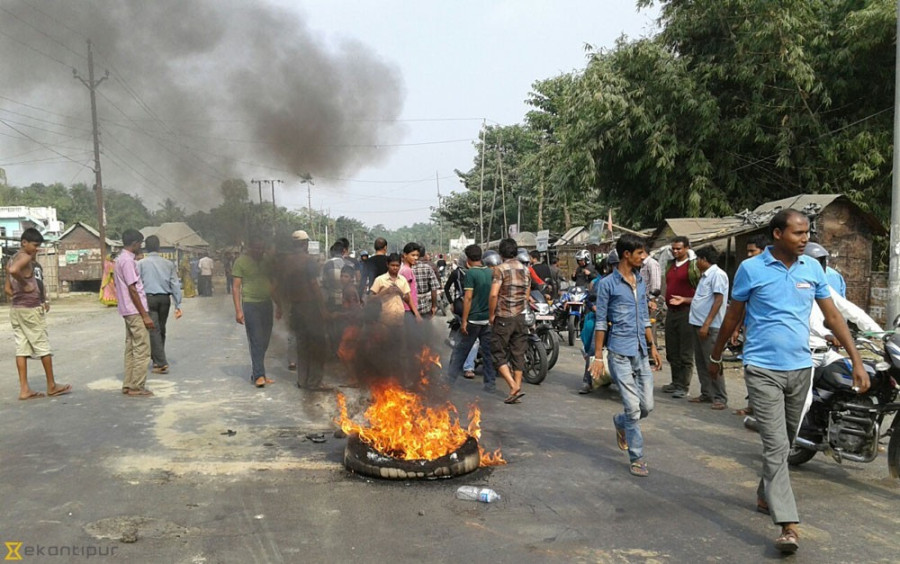National
Human Rights Watch calls on Nepal government to make public Lal commission report
The commission, which investigated deadly violence involving police and protesters in 2015, submitted its report in December 2017.
Post Report
Human Rights Watch, an international non-governmental organisation headquartered in New York City that conducts research and advocacy on human rights, has called on the government of Nepal to make public the report of a commission that investigated deadly violence involving police and protesters in 2015.
“Donors, including the United Kingdom and the United States, which provide training and other security assistance to Nepal, and the United Nations which uses Nepali police on field missions, should seek to make sure that the government upholds the report’s recommendations on transparency and accountability in law enforcement,” the rights body said in a statement on Thursday.
The government had formed the commission under the chairmanship of former Supreme Court justice Girish Chandra Lal on September 18, 2016, with the mandate to probe the incidents that took place during the Madhes movement, to find facts about the incidents, to recommend compensation for the victims and action against those held responsible for the killings.
When the commission presented the report to the government in December 2017, Lal had said that it included the cases of 66 people killed during the violence, including 10 policemen.
The report covered several weeks of violence in the southern part of the country during the final stage of drafting Nepal’s new constitution.
After the Rastriya Janata Party Nepal repeatedly obstructed parliamentary proceedings, the House Speaker on March 13 had issued a ruling to the government to make public the Lal commission report. The government, however, has yet to do so.
The HRW has said leaks to the media in recent weeks show that it contains crucial information to provide justice to the victims and could help prevent similar violence in the future.
“Selective leaks in the media are causing confusion about the findings. The government should instead release the full report and explain how it will respond to the recommendations,” the HRW statement has quoted Meenakshi Ganguly, South Asia director, as saying. “Victims and their families placed their faith in government commitments to an independent investigation, and there can be no possible justification for keeping the findings under wraps.”
The commission investigated incidents across the Tarai, including the actions of protesters and security forces’ responses. “Trials have gone forward for the killings of police officials, although witnesses told the commissioners that the real culprits had not been arrested,” said the rights body.
Human Rights Watch itself had investigated 25 of the killings documented in the commission’s report, with similar findings.
“Human Rights Watch found that during protests in Tikapur, Kailali district, eight police officers were beaten and burned to death on August 24, 2015. Another police officer was dragged from an ambulance and killed in Mahottari district on September 11,” said the rights body. “Human Rights Watch also documented numerous instances in which police opened fire indiscriminately or without justification, killing protesters and bystanders.”
The Lal commission included deputy attorney general Surya Koirala, advocate Sujan Lopchan, former Assistant Inspector General of Police Navaraj Dhakal, and Home Ministry Joint Secretary Narayan Prasad Sharma Duwadi as members. They investigated 3,264 complaints registered with the commission.
“The commission, composed of highly respected senior officials, struggled to produce independent findings despite a lack of cooperation from state authorities, and Nepal needs to show that it takes the findings about human rights violations seriously,” said Ganguly. “The Nepal police’s international partners should also review the findings and satisfy themselves that basic human rights commitments are being upheld.”
The rights body has said the Nepal Police receives substantial donor assistance from the UK and the US, partly with the objective of improving their human rights record. “The Nepal Police also contributes officers to UN missions, which involves human rights vetting of personnel,” said the HRW. “The commission’s report may contain material that the Nepal government needs to disclose to credibly maintain these relationships.”




 11.12°C Kathmandu
11.12°C Kathmandu













